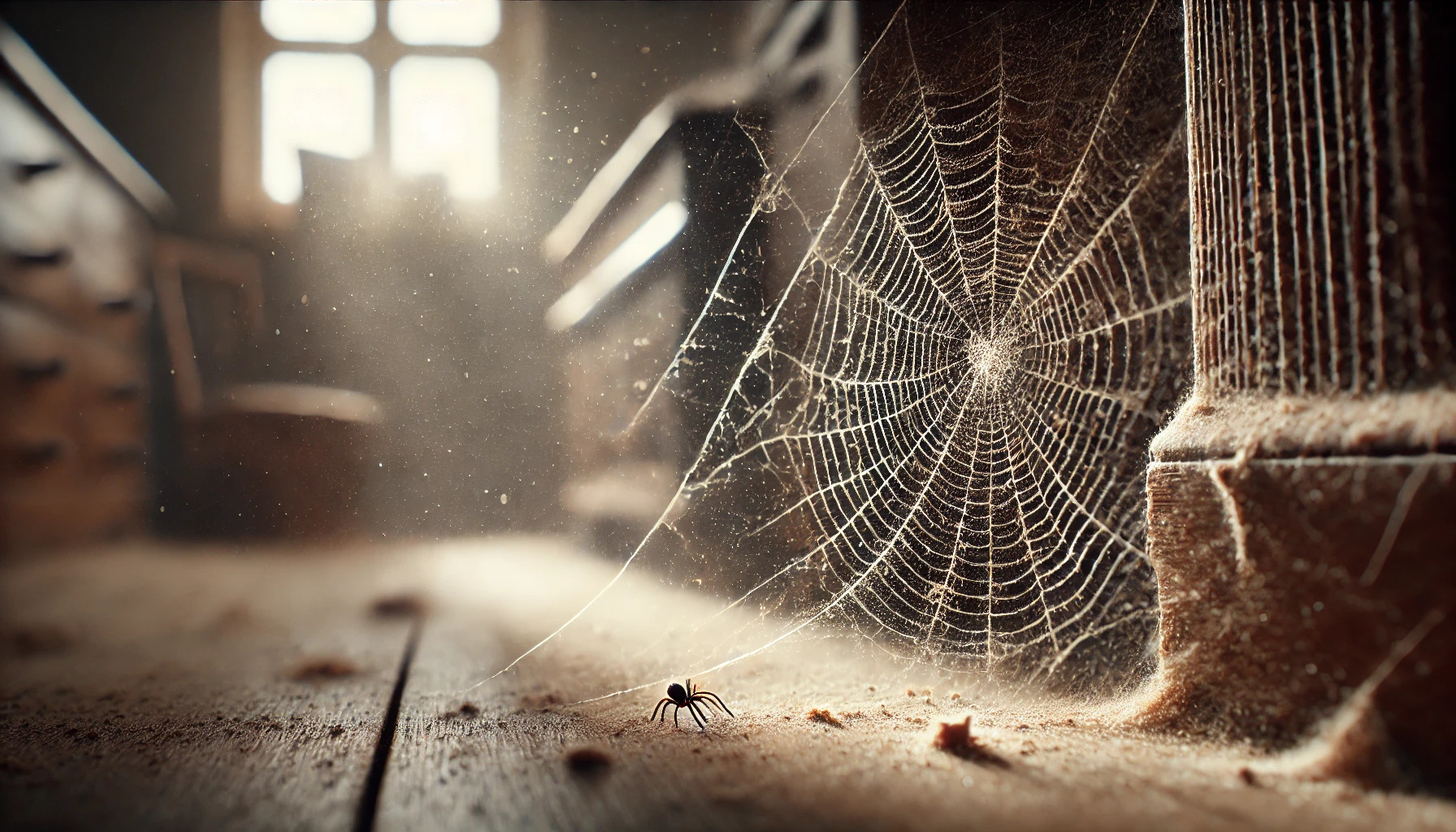What Causes Cobwebs
Ah, cobwebs. Those wispy, dusty strands that just seem to hang out of thin air turn that cozy home into a haunted house set. Having fought these clingy nuisances for years now, one thing stands very clear: just where are they coming from and why will they not stop coming back? Think of that one stubborn cobweb in the corner of your living room-you aren't alone. Let's go in into the creepy, crawly world of cobwebs and discover all the truth behind this continuous home invader. Well, if you think you are being somewhat overwhelmed by the cobwebs within your place, do not worry because there are plenty of cleaning services out there ready to come to your rescue.
First of all, what are cobwebs? Well, they aren't just spots where loads and loads of dust fall and then collect. As a matter of fact, the surprising thing about them is that they actually are spider webs which were abandoned and had left them to collect dust and debris over time. Yes, you heard it right-those thin strings once made by our eight-legged friends.
Unraveling the Mystery of Why Cobwebs Seem to Multiply in Your Home
Now that webs appear to be everywhere in your house, think of why cobwebs seem to occur that often before dozens of spiders plotting to take over your house flash through your mind:
Spider Squatters: Spiders opportunistically build webs anywhere they perceive it might be worth catching prey. Dark nooks, ceiling edges, and anything left undisturbed are all real estate prime for these little architects.
Abandoned Abodes: A spider may desert a web that is not capturing enough bugs for greener pastures. Even at the time of molting, spiders may just realize that it is best to leave the old web behind and move on. The deserted webs are what we know all too well as cobwebs and try to avoid.
Dust Magnets: The reason spider silk is so sticky is, of course, to catch one's prey. This stickiness carries over fairly unfortunately when it involves abandoned webs-loving dust particles enough to make themselves apparent after some time.
Hidden Highways: Some cobwebs are actually "bridging lines" that spiders go out to enact traveling from one place to another. These nearly invisible strands can readily catch dust and become more visible.
The Web Circle: One female spider can lay hundreds of eggs all at once. When the eggs hatch, as often as not, the little spiders immediately begin spinning webs, giving an apparent sudden increase in cobwebs.
Tips for Keeping Your Home Spider-Free
Since we know now where cobwebs come from, how can we stop them from taking over our homes? Well, here are some of the tried-and-true methods:
Regular Cleaning: I know, I know-not really the most exciting solution, but really, a good dusting and regular vacuuming-especially into those corners that are hard to reach-can make all the difference. Where time and energy are in short supply, consider hiring deep cleaning services that will attend to those awkward spots.
Seal the entry points: Windows, doors, and the wall cracks should be sealed to keep spiders among other creatures away.
Declutter: The less clutter you have, the less spiders or any other insect can hide in it. It reduces cleaning time, anyway!
Natural Repellents: Spiders abhor the strong smells of peppermint, eucalyptus, and tea tree oil. Mix the above with water and spray inside your home.
Keep your yard tidy: Trimming back vegetation around the building and minimizing outdoor clutter will help reduce the number of spiders setting up shop right outside your door.
Light It Up: Most of the insects on which spiders prey come to light. Avoid using regular white bulbs outdoors or use yellow bulbs because they are less attractive to insects.
Sticky Traps: Although not considered the most humane option, sticky traps can reduce spider populations in problem areas.
The Vacuum Method: For pre-existing cobwebs, your vacuum's extension hose is your best friend. Just be sure to dispose of the vacuum bag or contents outside to prevent any eight-legged escapees.
Remember, while the webs are generally somewhat a nuisance, spiders themselves actually play a huge role in the control of other insects. The goal is never to rid yourself completely of spiders but rather to regulate their presence in your living spaces.
Admittedly, this is a constant battle with cobwebs, but the knowledge given above helps you fight much better in order to keep your home free from cobwebs. And for those days when the cobweb seems to take over, do not give any afterthoughts to calling in the professionals. After all, sometimes we all need a little help to keep our homes from turning into the next Addams Family mansion.

